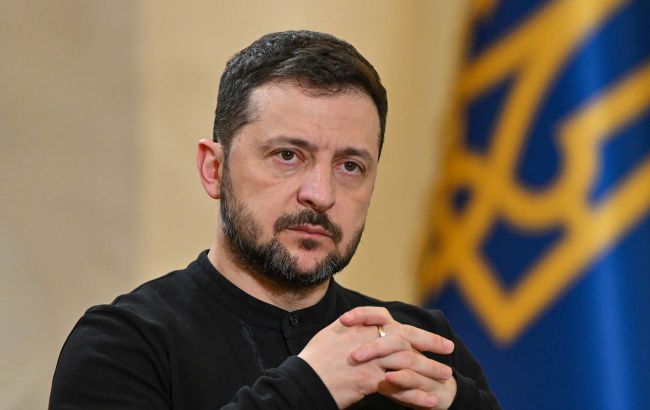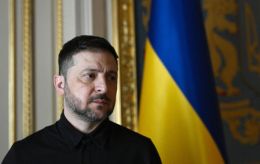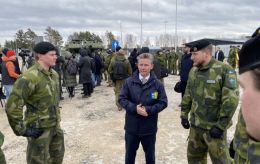Zelenskyy says European guarantees not enough without US
 Ukrainian President Volodymyr Zelenskyy (photo: Getty Images)
Ukrainian President Volodymyr Zelenskyy (photo: Getty Images)
European security guarantees for Ukraine may be insufficient to deter Russian President Vladimir Putin from a new invasion. Something more is needed, Ukrainian President Volodymyr Zelenskyy said in an interview with the French outlet Le Point.
Zelenskyy noted that it is necessary to deter Putin from starting a new war. This not only means forcing him to retreat – it is necessary to prevent the president from starting new bloodshed.
"For this we need other security guarantees. And to prevent Putin from starting the war again, European security guarantees may be insufficient. We need an alliance between Europe and the United States," the President explained.
Zelenskyy added that Europe can also resist Putin without the participation of the United States. The Ukrainian army restrains the Russian offensive with the help of weapons and funding from partners – even without the participation of European troops.
"And the United States provides the appropriate weapons that we purchase. However, if we want to stop the aggression or prevent a return to war, it depends on the European Union and the United States. This alliance will have a greater impact on Russia," the president summarized.
Security guarantees for Ukraine: What is known
Security guarantees for Ukraine began to be actively discussed after August 18 – when a meeting was held at the White House between US President Donald Trump, Ukrainian President Volodymyr Zelenskyy, and European leaders.
After the meeting at the White House, Ukrainian President Volodymyr Zelenskyy reported that the details of the guarantees were planned to be agreed upon within 10 days. However, later the deadlines were postponed for another week.
Recently, Zelenskyy outlined three key blocks of security guarantees for Ukraine. These concern the preservation of the army, cooperation with NATO countries, and sanctions against Russia. He also emphasized that Ukraine needs legally binding security guarantees from key countries of Europe and the United States of America, not another Budapest Memorandum.

